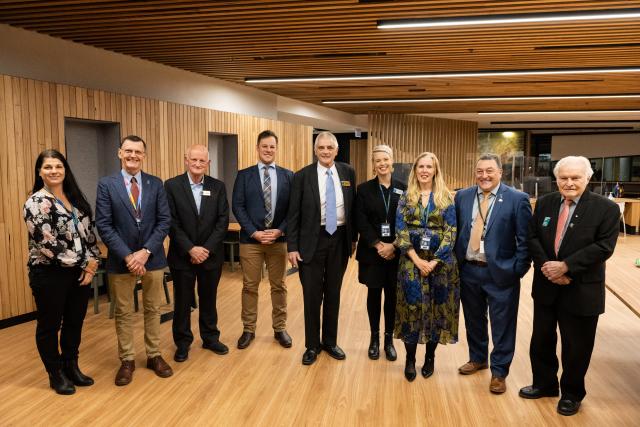Yarra Ranges Council joined some of the state’s peak local government bodies in making a submission to a Victorian Legislative Council inquiry investigating municipal funding and service delivery.
The economy and infrastructure committee will look at all aspects of the funding models of councils but most importantly the cost shifts from state and federal governments, the ability of councils to meet core service delivery requirements, revenue structure and alternative funding models.
Agreeing unanimously at the Tuesday 25 June meeting to approve the submission, councillors Johanna Skelton and Fiona McAllister said they were pleased Yarra Ranges Council could voice some of its concerns.
“I’m glad the State Government is asking for this feedback and it’s great that Yarra Ranges can deliver our particular localised issues and suggestions into that submission, into that process,” Cr Skelton said.
“If you don’t have a voice, nothing changes,” Cr McAllister said, despite expressing her somewhat lacklustre feeling towards the inquiry’s outcomes.
“This submission is important, but our ongoing, louder and ever strained voice about a system that just doesn’t work to get money to community in the way that it should.”
Some of the key figures in the submission outline the funding shortfalls the council experienced in the 2023-24 financial year.
It highlighted that from State Government funding only 65 per cent of the actual cost for the school crossing supervisor program was covered. Only 26 per cent of the actual immunisation costs was covered through State funding.
Similarly only 35 per cent of maternal and child health costs were funded.
With changes to the waste management services, the council’s submission identified that it would cost $1.8 million annually for litter and waste collection from public spaces, street, footpath and drain cleaning, as well as graffiti removal and other services
Despite wanting to avoid any rate cap exemptions, the council’s submission expressed fears of having to do so in the future to meet these demands.
The council submission addressed its estimated $1.5 billion worth of ageing assets, including the road network, drainage systems and community facilities which are no longer fit for purpose.
It also noted the limited access to regional funding streams, given the metropolitan classification, the increased natural disaster risk and the growing visitor economy, with the tourist rate expected to double to nine million per year by 2033.
“If we consider the revenue sources of local government and rates, for most councils, certainly metro councils like ourselves, is about 70 ish per cent of our revenue,” Cr McAllister said.
“Our current model relies on us being given grant funding to deliver infrastructure projects, to deliver recurrent programs such as our work supporting Aged and Disability Services. The funding model is flawed.”
The inquiry submission makes the case that grant funding for Greater Melbourne has decreased by 43 per cent, while the Yarra Ranges has seen a 63 per cent reduction in eligibility.
Key concerns of the council, given the unique tourist destination of the Yarra Valley and Dandenong Ranges, as well as the growing environmental risks, were highlighted as a balancing act.
“Ultimately, every year we have less money to respond to emergencies, money that we used to get from fires, floods, storms, dissipates year to year,” Cr McAllister said.
“We see additional taxes and levies applied, for example, the short term stay levy which is going to add another level of taxation to short term accommodation across Victoria. Will we see any of that to support the challenges we face about balancing the needs of community tourism and supporting housing availability?”
The Municipal Association of Victoria (MAV) and Local Government Finance Professionals (FinPro) also made submissions on behalf of the sector.
Cr McAllister said all the council asks for is a “sustainable, equitable” funding model to ensure primary services and functions of local government can be met to provide the best for the community.
“We don’t need more checks and balances…We just need money to spend on what matters most,” she said.
“I’m not going to hold my breath but I do think we need to continue to have a very clear and very loud voice on a system that’s not working at the moment.”







